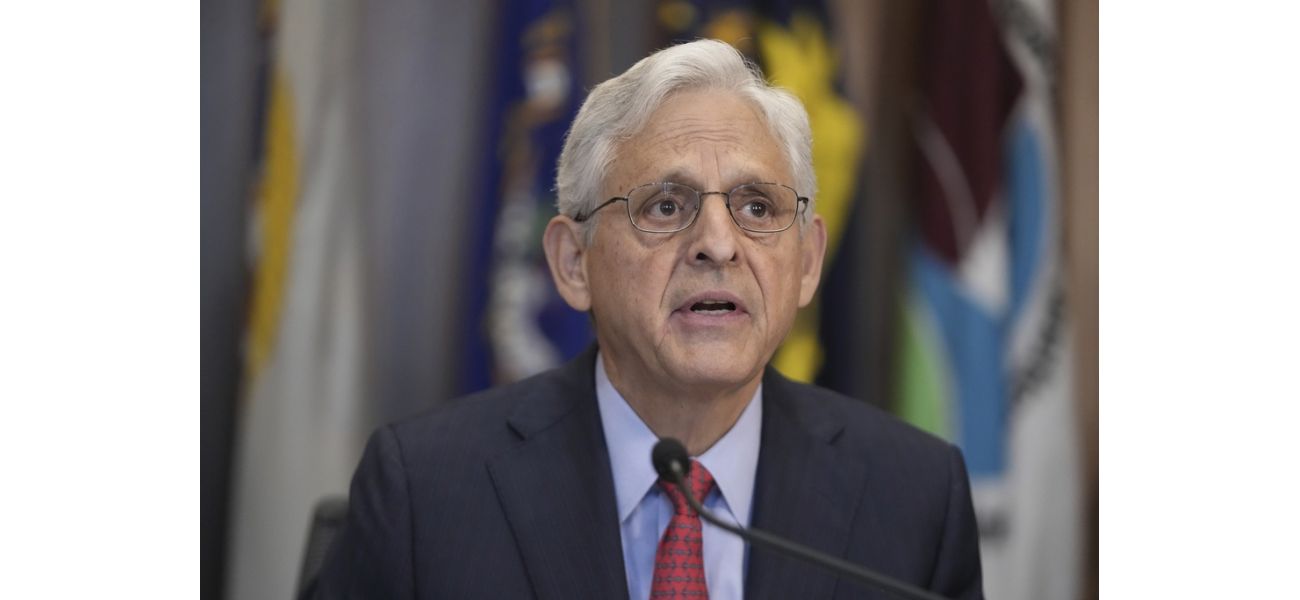The US claims that Russia is spreading false information ahead of the election.
A company is being accused of secretly financing a Tennessee content creation organization to produce 2000 videos promoting Russian propaganda.
September 4th 2024.

The Biden administration has recently taken significant measures to address the ongoing issue of Russian interference in the upcoming US presidential election. These actions include unsealing criminal charges against two employees of a Russian state-run media company and seizing internet domains used by the Kremlin to spread disinformation.
These efforts, introduced on Wednesday, reflect the US government's determination to disrupt the persistent threat posed by Russia. American officials have long warned about the potential for Russia to sow discord and confusion among voters. Despite ongoing investigations into a hack by Iran of Donald Trump's campaign and an attempted breach of the Joe Biden-Kamala Harris campaign, Washington has emphasized that Russia remains the primary threat to the election.
One of the criminal cases brought forth by the US government accuses two employees of RT, a Russian-state funded media organization, of secretly funding a content creation company in Tennessee to publish nearly 2000 videos containing Russian propaganda. The defendants, who are currently at large, used fake identities to conceal their involvement, and the content creation company was unaware that it was being used by Russia.
In addition to these charges, officials have also announced the seizure of 32 internet domains used by the Kremlin to spread Russian propaganda and undermine global support for Ukraine. Attorney General Merrick Garland stated that these actions were taken in response to Russia's use of state media to manipulate and deceive American influencers into spreading propaganda and disinformation.
Intelligence agencies have previously accused Russia of using disinformation to interfere in the election, and these latest measures demonstrate the seriousness of the US government's concerns. They also serve as a warning to those suspected of being involved in such activities that they may face legal consequences.
The State Department has also issued a statement emphasizing that while the US government will not tolerate foreign interference in free and fair elections, they are also aware of the lengths some foreign governments will go to undermine American democratic institutions. This sentiment was echoed by Deputy Attorney General Lisa Monaco, who called out Russian President Vladimir Putin and his proxies for using increasingly sophisticated techniques to interfere in the election, targeting specific voter demographics and swing-state voters.
The US officials' concerns about Russian interference primarily revolve around cyberattacks and disinformation campaigns aimed at influencing the November vote. These tactics include using state media outlets like RT to spread anti-US messages and utilizing networks of fake websites and social media accounts to amplify these messages and insert them into American online conversations. Often, these networks focus on divisive political topics such as immigration, crime, and conflicts like the war in Gaza.
What is particularly concerning is that many Americans may not even realize that the content they are seeing online originated from or was amplified by the Kremlin. According to a briefing given this summer by an official from the Office of the Director of National Intelligence, Russia is taking a "whole of government" approach to influence the election, including the presidential race.
To outsource some of the work of creating digital propaganda and cover their tracks, groups linked to the Kremlin are increasingly hiring marketing and communications firms within Russia. In March, the US announced sanctions against two such firms for creating fake websites and social media profiles to spread Kremlin disinformation.
The ultimate goal of these efforts is to get Americans to share and spread Russian disinformation without questioning its origin. This is why the use of fake websites designed to mimic US news outlets and AI-generated social media profiles has become increasingly prevalent. When contacted for a response, the Russian Embassy did not immediately reply.
These efforts, introduced on Wednesday, reflect the US government's determination to disrupt the persistent threat posed by Russia. American officials have long warned about the potential for Russia to sow discord and confusion among voters. Despite ongoing investigations into a hack by Iran of Donald Trump's campaign and an attempted breach of the Joe Biden-Kamala Harris campaign, Washington has emphasized that Russia remains the primary threat to the election.
One of the criminal cases brought forth by the US government accuses two employees of RT, a Russian-state funded media organization, of secretly funding a content creation company in Tennessee to publish nearly 2000 videos containing Russian propaganda. The defendants, who are currently at large, used fake identities to conceal their involvement, and the content creation company was unaware that it was being used by Russia.
In addition to these charges, officials have also announced the seizure of 32 internet domains used by the Kremlin to spread Russian propaganda and undermine global support for Ukraine. Attorney General Merrick Garland stated that these actions were taken in response to Russia's use of state media to manipulate and deceive American influencers into spreading propaganda and disinformation.
Intelligence agencies have previously accused Russia of using disinformation to interfere in the election, and these latest measures demonstrate the seriousness of the US government's concerns. They also serve as a warning to those suspected of being involved in such activities that they may face legal consequences.
The State Department has also issued a statement emphasizing that while the US government will not tolerate foreign interference in free and fair elections, they are also aware of the lengths some foreign governments will go to undermine American democratic institutions. This sentiment was echoed by Deputy Attorney General Lisa Monaco, who called out Russian President Vladimir Putin and his proxies for using increasingly sophisticated techniques to interfere in the election, targeting specific voter demographics and swing-state voters.
The US officials' concerns about Russian interference primarily revolve around cyberattacks and disinformation campaigns aimed at influencing the November vote. These tactics include using state media outlets like RT to spread anti-US messages and utilizing networks of fake websites and social media accounts to amplify these messages and insert them into American online conversations. Often, these networks focus on divisive political topics such as immigration, crime, and conflicts like the war in Gaza.
What is particularly concerning is that many Americans may not even realize that the content they are seeing online originated from or was amplified by the Kremlin. According to a briefing given this summer by an official from the Office of the Director of National Intelligence, Russia is taking a "whole of government" approach to influence the election, including the presidential race.
To outsource some of the work of creating digital propaganda and cover their tracks, groups linked to the Kremlin are increasingly hiring marketing and communications firms within Russia. In March, the US announced sanctions against two such firms for creating fake websites and social media profiles to spread Kremlin disinformation.
The ultimate goal of these efforts is to get Americans to share and spread Russian disinformation without questioning its origin. This is why the use of fake websites designed to mimic US news outlets and AI-generated social media profiles has become increasingly prevalent. When contacted for a response, the Russian Embassy did not immediately reply.
[This article has been trending online recently and has been generated with AI. Your feed is customized.]
[Generative AI is experimental.]
0
0
Submit Comment





